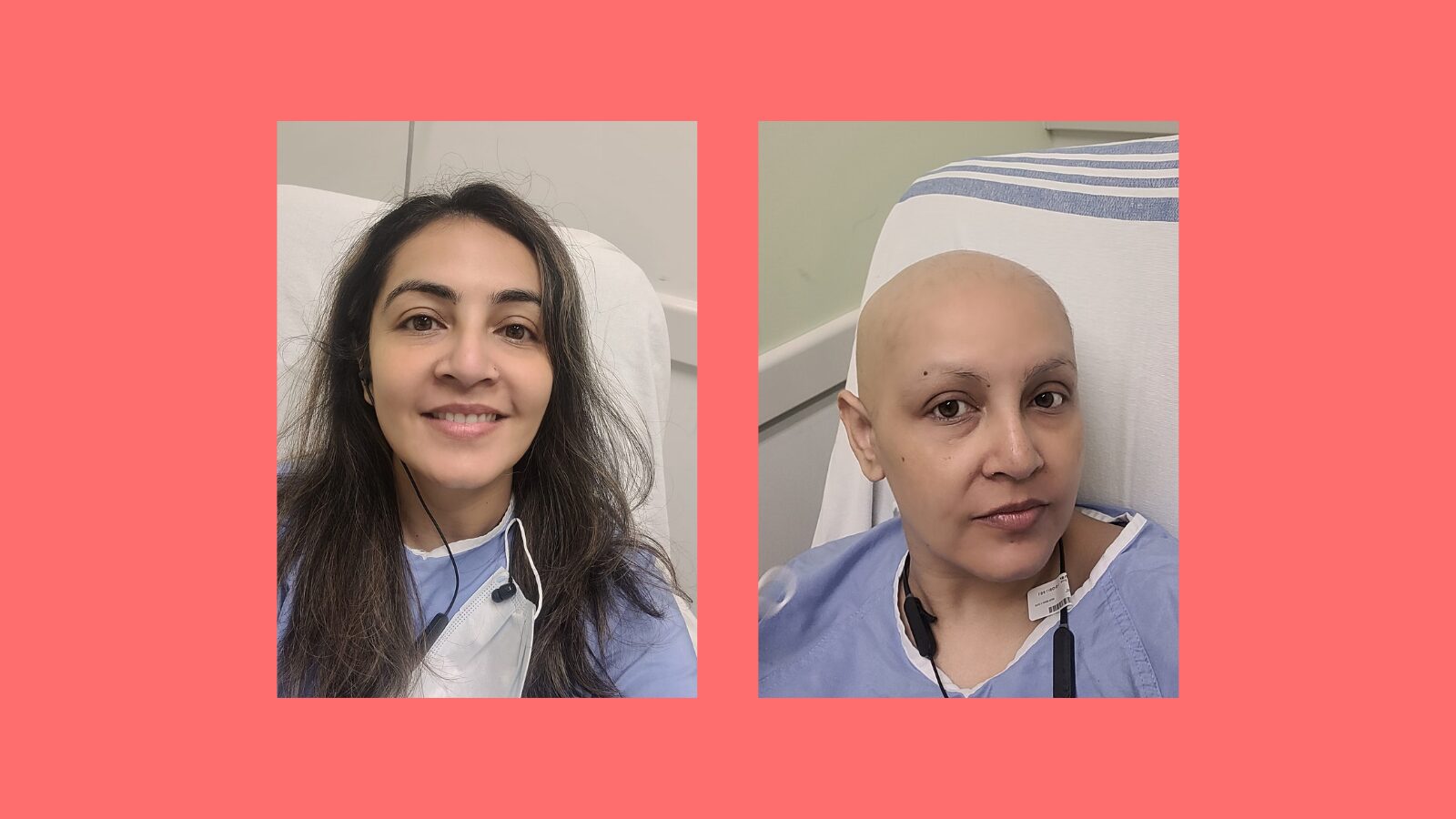The Courage to Say I’m Not Ok
4 MINS to read

It was July when I discovered a big hard lump in my right breast in 2022. Many of you reading this can probably relate when I say it changed my life. Yes, just after my 41st birthday I was diagnosed with stage 3 ER+ invasive grade 3 breast cancer. The moment I found that lump, I knew it. It’s what I have dreaded my whole life. My paternal grandma & aunty both suffered and passed away from breast cancer. Everyone I met before I was diagnosed always said that because it wasn’t on my maternal side, I had nothing to worry about. It turns out, I was carrying the BRCA2 gene. Apparently, the truth is it doesn’t matter if it’s your mother or father who carries the gene mutation, you have a 50% chance of having the same.
I was very young when I saw my grandma and aunt suffering from the effects of being diagnosed with breast cancer. Being South Asian, I remember how it was not discussed or shared with younger generations due to many social stigmas and fears attached to cancer. Strangely, I was somehow very self-aware about breast cancer anyway and was doing self-examinations quite regularly. That’s ultimately how I found my lump. I wonder what could have happened if I wasn’t so aware. The thought of that really scares me. So, I want to be the first to talk about this in my family and normalize these important conversations. I want everyone, especially South Asian people, knowing our cultures, that it’s so important for women to be aware of this disease and for us to grow up knowing about our family history. Talking about it may be scary, but it’s also empowering to have the right information, to understand a personal risk, to know when something is wrong so it can be dealt with in the best possible way.
When I found out I had cancer, I was devastated and heartbroken inside, but I put up a mask of fake bravery. This was another side effect of social stigmas and barriers present in my culture, and our society as a whole. While I was open with them about my diagnosis and the fact that I was receiving treatment for breast cancer, I felt so responsible for my family, my son, that I couldn’t even cry out loud. I have the most supportive and loving family anyone could wish for. But, I still felt my diagnosis would disrupt everyone’s life and I felt responsible for this disruption. I didn’t want to be a burden. I was the one that took care of my son and my family. Now, it would be the reverse.
The truth is, I was enabling toxic positivity with my perceived “strong attitude.” Contrary to what I showed to everyone, I was not fine and not ok. This weighed me down inside awfully. I wish I would have expressed my truth.
I am so blessed to have my family. My family was there and did whatever I wished for. They took care of me and gave me what I needed. They stood by me every moment. But I couldn’t express my innermost emotions to them. I couldn’t show them how scared I really was. I thought I needed to be the “strong woman.” I thought I still needed to take care of everyone else before myself. While I was open to expressing my diagnosis, I was still hiding the truth of what was occurring. I still felt that shame of asking for help in fear that I’d be a burden for them. I wanted everyone around me to believe I was truly okay.
My breast cancer diagnosis is not my fault. I am not responsible for it and ultimately not responsible for everyone else either. The same goes for any of us who have been diagnosed with breast cancer. Yes, we should practice self-care, maybe there are things we can feel good about during these dire and hard times, but we don’t need to further harm ourselves with toxic positivity.
It isn’t always easy, but my advice for anyone going through this is to remember to be yourself. Truly and authentically. Each day is going to be different and you cannot always put on that brave face — and you shouldn’t have to. No matter what, your loved ones will most definitely support you and love you. It’s ok to be vulnerable and express your true feelings — “Its ok to not be ok.” — Ashima Kochar